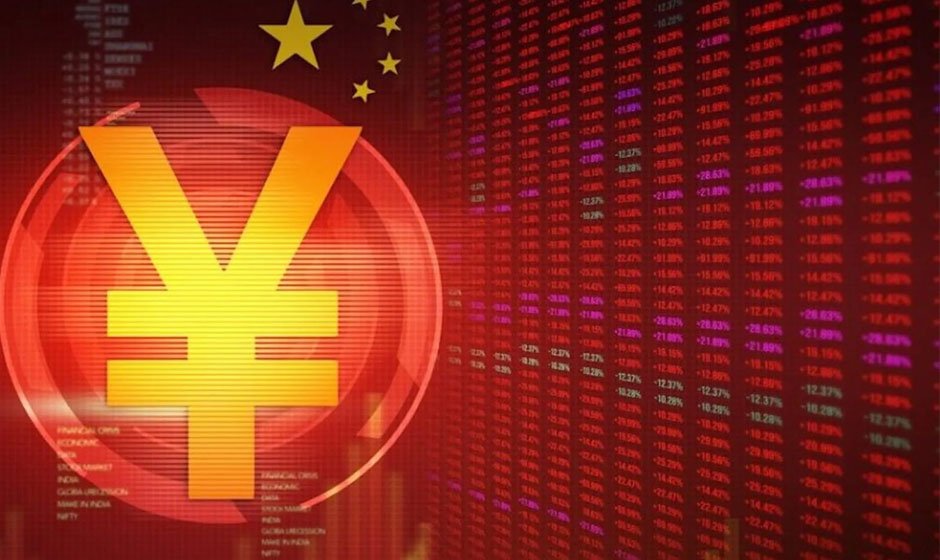Exchange Rate Dynamics: Digital Yuan’s Influence Unveiled

Imagine a world where traditional money takes a backseat to digital currency. That’s the revolution the Digital Yuan is poised to ignite. This article explores how China’s pioneering digital currency is set to reshape global finance, influence currency exchange rates, redefine international trade, and provoke varied regulatory responses. In understanding currency impacts, you can Create your account on Yuan Profit for educational insights on how Digital Yuan influences exchange rates.
Global Economic Implications of the Digital Yuan
The world economy is trembling due to China’s adoption of the Digital Yuan. This signifies a significant transition from established monetary systems toward a digital format governed by the People’s Bank of China, a central authority. Consider how digital platforms have impacted streaming and shopping. The Digital Yuan could similarly revolutionize global economic exchanges.
This isn’t only a technological advancement in cash. It is a calculated move that may increase China’s influence in the world’s financial markets. Reducing reliance on the dollar in global trade may change power balances. The Digital Yuan also makes cross-border transactions more accessible and less expensive. Recall that time and cost savings frequently result in broader economic changes in the corporate world.
Additionally, the Digital Yuan’s technology makes it possible to track money movements more accurately. This may aid in the enforcement of financial laws and the fight against fraud. But it also calls into question control and privacy. The key will be striking a balance between innovation and regulation.
How might other countries react? Some might see an opportunity to collaborate, while others might boost their digital currency projects to stay competitive. The ripple effects could redefine trade, investment, and even monetary policy worldwide. Keep an eye on this space—it’s evolving rapidly!
Impact on Currency Exchange Rates
The roll-out of the Digital Yuan is more than a technological innovation; it’s a development that could twist the fabric of currency exchange markets. Traditionally, currencies like the US dollar and the Euro have dominated these markets. But with the Digital Yuan in play, things could get interesting.
Imagine this: if European companies start using the Digital Yuan to buy goods from China, demand for the Yuan increases. As demand increases, so does the value of the Yuan compared to the Euro. This is a fundamental economic principle—supply and demand.
However, the impact isn’t just on trade. Investors might start seeing the Digital Yuan as a safer asset, especially if China’s economy remains stable and the technology proves robust. This perception alone could alter exchange rates.
But what if the Digital Yuan catches on? It could lead to lower transaction costs and faster settlement times, making it a preferred currency for international trade. This could further boost its value. Still, it’s a complex road. Fluctuations in how much people trust this new currency could lead to volatile exchange rates. So, if you’re investing, keep a close watch and maybe talk to a financial expert.
Digital Yuan and International Trade
The Digital Yuan could be a game-changer for international trade. Allowing direct transactions between businesses in different countries eliminates many intermediaries involved in currency exchange. This could mean lower costs and faster deals—music to the ears of any business owner.
Consider a Chinese manufacturer and a European retailer. Currently, they face a maze of banks and fees to settle transactions. With the Digital Yuan, this could be streamlined to a simple digital transfer that is fully traceable and potentially more secure thanks to blockchain technology.
However, not everyone might be on board. Some countries may hesitate to allow foreign digital currency into their markets, and they might need help losing control over their economic policies. However, for countries that sign on, the Digital Yuan could lead to stronger trade ties with China, potentially reshaping trade networks.
Also, this move could inspire other nations to accelerate their digital currency initiatives. We might see a race to launch compatible systems facilitating smoother international trade. So, businesses should stay informed and be ready to adapt to these emerging trends.
Regulatory Responses to the Rise of Digital Yuan
Regulators worldwide are paying attention as the Digital Yuan gathers traction. How they react will significantly shape its future. Every nation has its own set of regulations, and the Digital Yuan is a fresh participant in this intricate market.
Regulators face a difficult balancing act. They must uphold financial stability and consumer protection while avoiding inhibiting creativity. Nations like the US, EU, and Japan are probably closely examining the Digital Yuan to see how it fits into the current financial systems and what effect it has on monetary policy.
Will they accept it, control it, or block it? The extent to which the Digital Yuan is embraced globally will depend on these choices. Global financial institutions like the IMF might need to modify their guidelines for this new digital currency.
Moreover, conversations concerning cybersecurity and digital sovereignty are being sparked by the growth of the Digital Yuan. Authorities must ensure that there is no excessive reliance on digital assets outside their financial systems and that those systems are safe.
Conclusion
As the Digital Yuan carves its path in the financial landscape, its broad implications are becoming apparent. From shifting global power balances to transforming how we conduct cross-border trade, this digital currency is more than a technological innovation—it’s a financial evolution.



